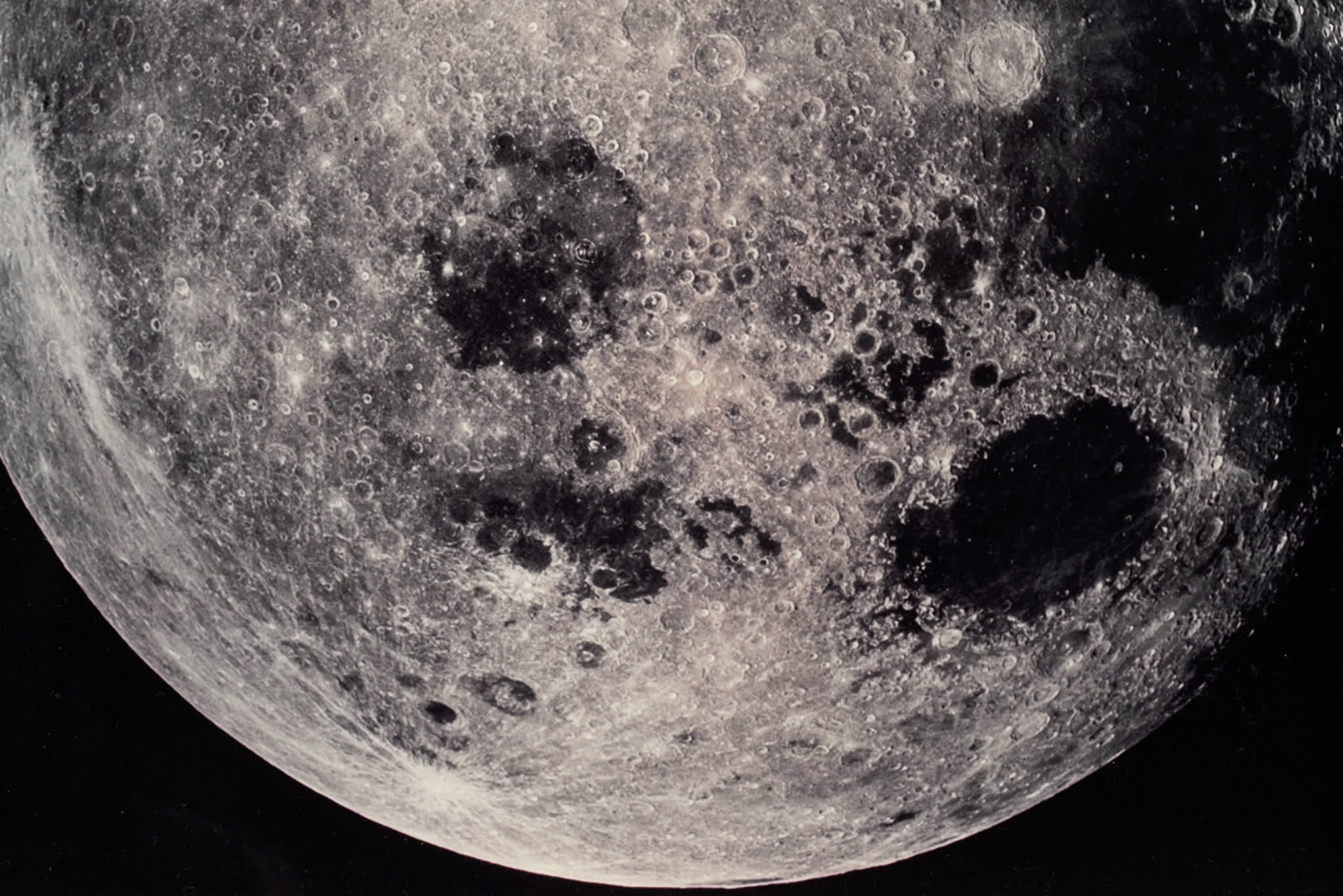In a nutshell: One of Elon Musk's SpaceX rockets sent into space almost seven years ago will crash into the moon at the start of March, experts say. That might not sound like a good thing, but the impact could offer some valuable scientific information.
In February 2015, SpaceX launched its first interplanetary mission from Florida, sending a weather satellite more than 1 million miles away from the Earth. Following the Falcon 9 rocket's long burn to reach a transfer orbit, it did not have enough fuel to return to Earth's atmosphere and burn up. It also "lacked the energy to escape the gravity of the Earth-Moon system," meteorologist Eric Berger wrote on Ars Technica, leaving it in a "chaotic orbit."
Space observers now say that the Falcon 9's second stage, which is about four metric tons, will crash into the moon at a velocity of about 2.58 km/s (5,700mph) in a few weeks. Bill Gray, who writes the Project Pluto software to track near-Earth objects, said it would hit the far side of the moon, near the equator, on March 4.
For those asking: yes, an old Falcon 9 second stage left in high orbit in 2015 is going to hit the moon on March 4. It's interesting, but not a big deal.
--- Jonathan McDowell (@planet4589) January 25, 2022
"Space junk can be a little tricky," Gray said. "I have a fairly complete mathematical model of what the earth, moon, sun, and planets are doing and how their gravity is affecting the object. I have a rough idea of how much sunlight is pushing outward on the object, gently pushing it away from the sun. This usually enables me to make predictions with a good bit of confidence."
For amateur astronomers hoping to see the collision from Earth, Gray says the bulk of the moon will be in the way, "and even if it were on the near side, the impact occurs a couple of days after New Moon."
It's believed that satellites currently orbiting the moon, including NASA's Lunar Reconnaissance Orbiter and India's Chandrayaan-2 spacecraft, will be able to gather valuable data from the impact crater and revealed material. NASA purposely impacted the moon with a spent rocket stage in 2009 for the same purpose, but this is thought to be the first instance of a piece of space junk unintentionally hitting the moon.
Keeping with unintentional (near) impacts, last month saw China complain to the UN over claims that SpaceX Starlink satellites almost crashed into its space station twice in the past year.
